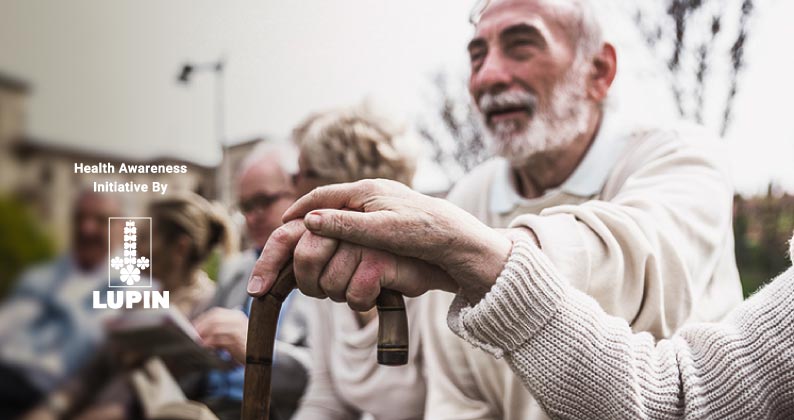How To Care For Someone With Alzheimer’s?
By Nikita Banerjee +2 more

Download PharmEasy App




Register to Avail the Offer
Send OTPBy continuing, you agree with our Privacy Policy and Terms and Conditions
By Nikita Banerjee +2 more
Table of Contents
Having a family member with Alzheimer’s disease (AD) necessitates that you know more about the condition.
The disease initially and primarily affects the memory of the affected person. As the disease progresses other mental abilities like reasoning, decision-making, language, judgment is also affected.

Initially, the disease starts with mild symptoms of defects in the thought process. However, not all who suffer from cognitive difficulties develop AD. Based on the severity of the symptoms, the disease may be graded as mild, moderate or severe. Also, the disease may progress at a different pace in each affected individual.
Ways That May Help You To Support Your Family Member With AD
After confirmation of diagnosis, the patient is prescribed certain medicines. These medicines do help the patient by improving cognitive function. The doctor may also prescribe some medication to manage other symptoms like anxiety or aggressiveness. Compliance with the medication is essential to control the signs of the condition. The patient should be taken for periodic re-assessment of the disease.
In the initial or milder stage the patients generally repeatedly ask the same question or describe the same event again and again. They may forget the occasion they recently attended or the discussion they had. They also may tend to lose track of time or the day or week or month. They have difficulty remembering small things like spelling their name correctly. They tend to isolate themselves and demonstrate a lack of interest in anything. Due to the tendency of forgetting activities like banking, cooking, shopping, teaching become routine life becomes challenging. They may forget the usual way home from the office or nearby locations, so driving becomes difficult.
Since the patient may never accept that they have been diagnosed with AD, it is futile to convince them about it. Instead, the family members should focus on ways to tackle the newer problems that they anticipate due to the patient’s condition.
One may have to make alternative arrangement for the responsibilities the patient used to handle otherwise. Support may also be required to take the patient around to the doctor or for a walk or help with daily activities. Monitoring and ensuring the safety of the patient is necessary because they may unintentionally harm themselves, for example, they may use a knife as a comb or boil oil instead of milk for drinking. They may lose their way and be unable to reach back home.
In moderate cases, the patient may ask the same thing more repetitively, become restless or may suffer from unusual fears like fear of reading or bathing. Co-ordinated activities start getting affected like eating or simple activities like combing hair or clothing themselves or brushing teeth or walking. Their learned behaviour may be affected further like they may forget their driving skill or swimming. They may not be able to comprehend what is being told or may not be able to frame sentences or usually speak or read and write. They even may not be able to recognize family members or friends and neighbours. Some patients may become more aggressive
At this stage, they may need continuous monitoring and help. You may need to arrange support to manage them or become an Alzheimer’s caregiver yourself.
In severe cases, as the disease progresses, they become entirely dependent, since they almost completely forget the learned behaviour. Basic skills of swallowing or walking are wholly forgotten. They stop recognizing anyone.
In such severe cases, the patient needs complete medical care and may need to be sent to a specialized care centre.
At whatever stage the patient is, the Alzheimer’s caregiver has to gather a lot of patience and understand that it is the disease that is manifesting its symptoms. A dear one not recognizing you may be very distressing. Nevertheless, since there is no cure for AD, it is essential to accept that managing symptom and supporting the patient in his or her daily routine are a few ways one can help the patient.
Talk to them slowly framing simple sentences. Don’t be too assertive, listen to them. Be reassuring in case they feel unsafe and helpless. Tell them simple jokes. Use their favourite music or book to distract them if they are too agitated. Try to perform small tasks with them helping you like arranging books on the shelf or wiping dishes or stacking folded clothes.
Also Read: Benefits of Turkey Tail Mushroom: A Research-Supported Health Exploration
You may also want to talk to family members of other patients with AD or join a group so that you can get some practical tips on managing the patient. This may also help you to discuss particular problems which normally other people may not understand.
Closely tracking the patient’s condition, ensuring safety and caring for their general hygiene with periodic follow-ups with the doctor are some critical way in which you can care for your family member with AD.
Disclaimer: The above information has been prepared by a qualified medical professional and may not represent the practices followed universally. The suggestions listed in this article constitute relatively common advice given to patients, and since every patient is different, you are advised to consult your physician, if in doubt, before acting upon this information. Lupin Limited has only facilitated the distribution of this information to you in the interest of patient education and welfare.
Read More About: How To Manage Stress? Signs And Symptoms Of Stress In Women
Comments